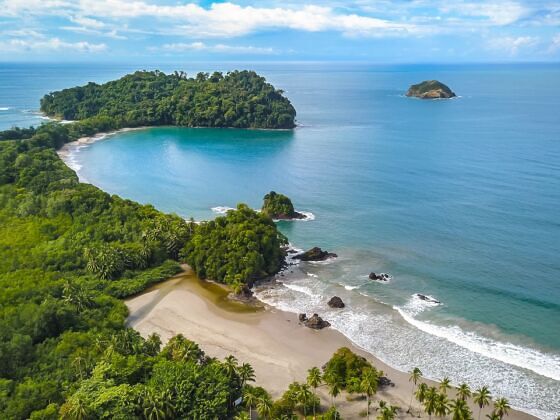You, and 3 billion other tourists, will love Manuel Antonio National Park. Recommended travel gear includes a helmet and elbow pads. It makes pushing aside the weaker tourists much easier so that you can be the first to get a perfect, once-in-a-lifetime picture of those cute Capuchin monkeys playing with themselves in the palm trees.
Pro tip: Try filming the iguanas. They move a lot slower, and are less likely to throw feces.
